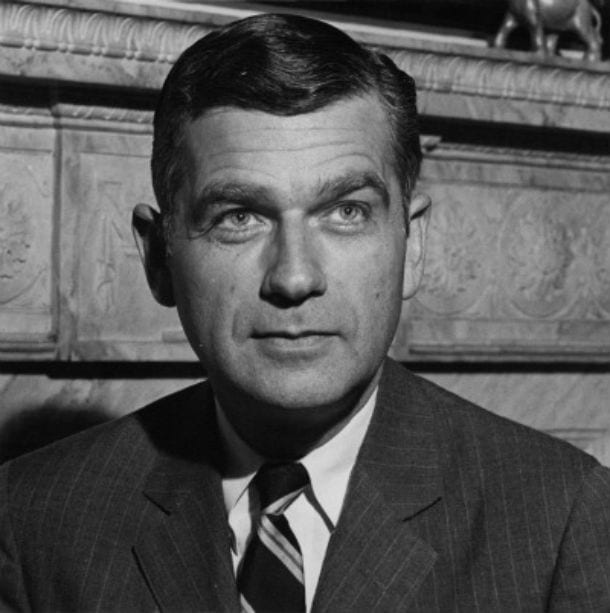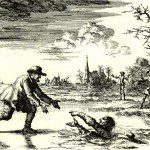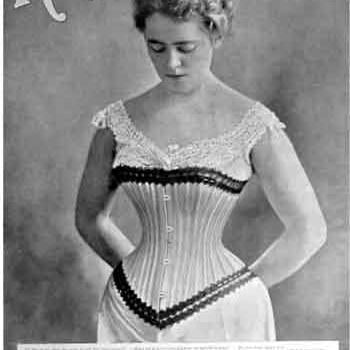On February 1, 1973, Senator Mark Hatfield (R) of Oregon delivered a stinging address at the National Prayer Breakfast. With President Richard Nixon on his right, Billy Graham on his left, and Henry Kissinger and 3,000 other dignitaries in front of him in the audience, Hatfield’s speech went like this:

My brothers and sisters:
As we gather at this prayer breakfast let us beware of the real danger of misplaced allegiance, if not outright idolatry, to the extent we fail to distinguish between the god of an American civil religion and the God who reveals Himself in the Holy Scriptures and in Jesus Christ.
If we as leaders appeal to the god of civil religion, our faith is in a small and exclusive deity, a loyal spiritual Advisor to power and prestige, a Defender of only the American nation, the object of a national folk religion devoid of moral content. But if we pray to the Biblical God of justice and righteousness, we fall under God’s judgment for calling upon His name, but failing to obey His commands.
Our Lord Jesus Christ confronts false petitioners who disobey the Word of God: “Why do you call me, ‘Lord, Lord’ and do not the things I say?” (Luke 6:46).
God tells us that acceptable worship and obedience are expressed by specific acts of love and justice: “Is not this what I require of you … to loose the fetters of injustice … to snap every yoke and set free those who have been crushed? Is it not sharing your food with the hungry, taking the homeless poor into your house, clothing the naked when you meet them, and never evading a duty to your kinfolk?” (Isa. 58:6-7).
We sit here today, as the wealthy and the powerful. But let us not forget that those who follow Christ will more often find themselves not with comfortable majorities, but with miserable minorities.
Today our prayers must begin with repentance. Individually, we must seek forgiveness for the exile of love from our hearts. And corporately as a people, we must turn in repentance from the sin that scarred our national soul.
“If my people … shall humble themselves, and pray, and seek my face, and turn from their wicked ways, … then I will forgive their sins, and will heal their land” (2 Chron. 7:14).
We need a “confessing church” –a body of people who confess Jesus as Lord and are prepared to live by their confession. Lives lived under the Lordship of Jesus Christ at this point in our history may well put us at odds with values of our society, abuses of political power, and cultural conformity of our church. We need those who seek to honor the claims of their discipleship—those who lives in active obedience to the call “… do not be conformed to this world, but be transformed by the renewing of your minds” (Rom. 12:2). We must continually be transformed by Jesus Christ and take His commands seriously. Let us be Christ’s messengers of reconciliation and peace, giving our lives over to the power of His love. Then we can soothe the wounds of war, and renew the face of the earth and all mankind.
By all accounts, Hatfield’s invocation of “the sin that scarred the national soul” was a barely veiled attack on the war in Vietnam. A liberal Republican when such a thing was possible, Hatfield had come out against the war—and against Nixon and his acceleration of hostilities in Vietnam. This represented quite a shift from four years earlier when Nixon (with encouragement from Billy Graham, who was present during the vice-presidential deliberations at the Hilton Plaza in Miami) had considered asking Hatfield to be his running mate. In fact, a Miami newspaper predicted a Nixon-Hatfield ticket on its front page during the 1968 Republican National Convention, and ABC’s Peter Jennings was on hand at Hatfield’s hotel in case he was chosen.
But this 1973 speech, according to UPI reporter Wesley Pippert, was a brazen assault on the President, one that essentially re-enacted “one of the most dramatic confrontations since the Prophet Nathan told King David, ‘You are the man!’” The New York Times ran a 22-paragraph story on the breakfast that devoted just two paragraphs to Nixon’s remarks and twelve to Hatfield’s. White House officials, infuriated at his remarks, put Hatfield on the White House “enemies list.”
The Times would have been even more fascinated had they known where much of the text had come from. Jim Wallis, a young radical who lived in an evangelical commune called the Post-Americans (later renamed Sojourners), had sent a manuscript to Washington by fax from a Ford dealership in Chicago. Parts of Hatfield’s speech were taken nearly word for word from that manuscript.
Several years earlier, at the loneliest and most disquieted point in his career, Hatfield had encountered several progressive evangelical groups that gave him hope and persuaded him to carry on his political career. This collaboration was still young, but the senator had started contributing numerous articles to the Post-American and was now listed as a contributing editor on the masthead. Wes Michaelson, who worked among the Post-Americans after they moved to Washington, served as Hatfield’s chief aide and would go on to ghost-write his memoir Between a Rock and a Hard Place (1976). Hatfield and Wallis met regularly in the Senate building for prayer and political collaboration, out of which came the most audacious speech of the senator’s career.
Hatfield, like the broader evangelical left, remained estranged from broader evangelicalism—in both views and political methodology. Striving for political relevance rather than prophetic witness, Billy Graham did not publicly articulate his concerns about Vietnam. Though distressed over the Cambodian incursion in 1970, he had refused the many entreaties of young evangelicals to condemn the war. “What can people expect me to do?” he rhetorically asked. “March in protest? Carry a sign? If I do that, then all the doors at the White House and all the avenues to people in high office in this administration are closed to me.”
Graham, in fact, sought to preserve such access by condemning Hatfield in a phone call with Nixon on the evening of February 21, 1973, just weeks after the National Prayer Breakfast. In White House tapes, an obsequious Graham can be heard telling the President how “terrible” and “embarrassed” he was when Hatfield condemned the war. “To use a platform like that in your presence at a Presidential prayer breakfast,” said Graham, “which we leaned over backwards all these years to keep non-political, and to get up and do a thing like that was just inexcusable. And if he has any part in it next year, I don’t intend to go.” The political aspirations and reluctance of evangelicals to question authority stood in the way of a potential antiwar push.
This conservative pressure discouraged many evangelical moderates with misgivings about the war from articulating their doubts publicly. Only later would Hatfield enjoy the “heartwarming experience” of finding that within InterVarsity Christian Fellowship, an evangelical student ministry, “there were many who were conservative theologically who totally agreed with my stand.” But their antiwar dissent remained muted by a still-dominant ethos of pietist personalism. “For all our pompous talk,” editorialized one moderate evangelical journal, “we were not there to help the Hatfields who fought alone. We hid our light while Viet Nam died. Many of us even waved flags. Repent all of us.” Excepting a few scattered evangelical lefties, Hatfield indeed fought alone. And in the decades since, very few others have emerged to take his place.
This historical reality raises a more fundamental question of whether the National Prayer Breakfast is a good idea at all in a religiously plural society. High numbers of evangelicals perpetuate Christian nationalism, fuse the cross and the sword, and pledge allegiance to the United States of America. Their nationalistic impulse does not leave much room for dissent, nor does it cultivate politicians who have the courage, as Hatfield did, to be prophetic. It certainly didn’t constrain Graham, who worried that “all the avenues to people in high office in this administration are closed to me.”
Perhaps it is time retire the Breakfast. With the exception of Hatfield in 1973, the general evangelical posture has been one of polite acquiescence to the Washington establishment, sycophantic cheerleading of one’s own party, and partisan critiques of the other party—all while eating a meal that costs $175 a plate. I’m not holding my breath, but perhaps the absolute farce of Donald Trump presiding next Wednesday over this “religious” event (which last year began with the president asking the audience to pray for Arnold Schwarzenegger so that ratings of his show—NBC’s “The Apprentice”—would go up) will do the trick.












